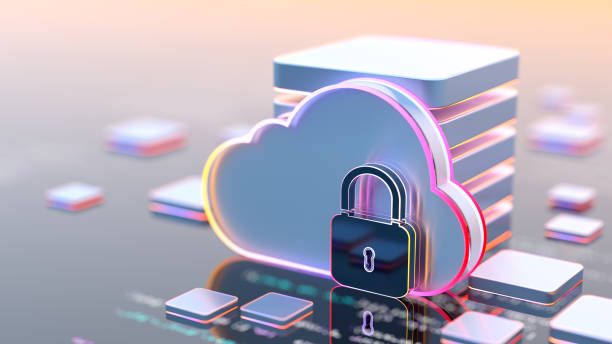Security concerns rise along with the percentage of people using the internet on a daily basis. People are releasing more personal information online as a result of the surge in social media usage, making it increasingly challenging to secure sensitive data. Fortunately, there are several ways to safeguard your personal data and online identity.
Check encryption before making a purchase
Online shopping has become more and more popular and instead of spending time and energy shopping in physical stores, people just choose to shop in online stores. However, there are a few things you should take into account for your online security. The best course of action is to stay away from malicious websites completely. You may ask yourself: what is a malicious website?
There are two main ways you can detect this. Before completing an online purchase, be sure the website or the application is secured to protect your identity. You should start by scanning for the most reliable security lock sign, which is the additional “s” following the internet protocol HTTP in the URL or web address bar.
This implies that on a secure credit card website, “HTTP” becomes “HTTPS”. Additionally, in your browser’s address bar or bottom-left corner, there should be a lock icon. These two indicators demonstrate that the website is secure and that only you can see the data submitted. Your identity, phone number, address, credit card number, etc. are all protected by encryption.
Be careful about phishing scams
Phishing describes many internet schemes that “phish” your financial and personal information. These communications make the claim to be from a reliable source, such as a respectable bank, online payment provider, software firm, or other trustworthy organization. Some people try to appear real by using a company’s email address, logo, or other trademarks. Phishing emails might even pretend to be from a reliable friend or coworker.
The key to identifying a phishing email is to look for any irregularities or inconsistencies. Phishing scams come in a variety of forms, but they can all be prevented if you know how to spot them. Never open attachments in emails from people you don’t know, and stay away from clicking on insecure links in weird emails if you want to avoid falling for a phishing scam. Avoid anybody who asks you for money, offers you an odd job or asks you to donate to a charity because they could be trying to get your personal information and online identity.
Install an antivirus software and update it regularly
Although we refer to this kind of software as antivirus, preventing real computer viruses is really a small portion of what it can achieve. Good antivirus software protects you against many online threats. You should also make sure to install updates to your antivirus software regularly as updates fix any important security problems and ensure that you are protected well enough. If you ignore updating your antivirus software, it might not do its job of protecting you against online threats.
Also, whether you’ve selected a basic antivirus program or a comprehensive protection suite, you must renew it annually. Enrolling in automatic renewal is your best option. By doing this, certain security products can ensure their systems are malware-free. If you feel the want to switch to a different product later, you can always opt out.
Be careful while using public Wi-Fi
There is no doubting the practicality of public Wi-Fi, particularly in this day when many of us work remotely. If you decide to use one while traveling, though, you can be putting your security and privacy in danger if you don’t take the proper safety measures.
Your emails, bank information, and account credentials, among other things, may be accessible to hackers if you give them information over a Wi-Fi hotspot. Additionally, hackers may create their own fake Wi-Fi hotspots that look authentic but are just there to steal the data of everyone who connects to them.
Use a mobile connection and certain mobile applications instead of the Wi-Fi hotspot to access any valuable information or applications, such as an online banking service. You can also use a trustworthy VPN while connected to public Wi-Fi to make sure that you are protected from prying eyes.
Uninstall unused browser extensions and mobile apps
Being wary of any app pays off in terms of security and privacy. With fewer accounts, your risk will be lower. A good tip in detecting which apps use your personal information can be considering how the app you’re using generates revenue. User data may be the answer if you’re confused about how an app earns money. This simple tip might point you in the direction of applications that prioritize your privacy.
You should delete an app when you see that you are not using it anymore. You should also delete any software you don’t use frequently, including browser extensions and mobile apps. With hidden features, even programs you’ve forgotten about can continue to function. Also, keep in mind that even if you still sometimes visit a website, it’s safer to use your browser to view it rather than downloading the app on your device.
Most common cyberattack: malware
Any program or code that was written with the intention of damaging a computer, network, or server is known as malware, sometimes known as malicious software. The majority of cyberattacks fall under the category of malware, which includes various subtypes including ransomware, trojans, spyware, viruses, worms, keyloggers, bots, and any other assault that makes use of software to steal information.
According to a survey, ransomware is now the most common type of cyberattack under the malware umbrella. It is made to prevent a person or business from accessing files on a computer. Cyberattackers put people in a situation where paying the ransom is the quickest and least expensive option to recover access to their files by encrypting these files and requesting a ransom payment for the decryption key.
Whichever the type, you should always follow the practices above to make sure that you don’t fall victim to any malware. Even though it is hard to recover from a cyberattack, it might be easier than you think to make sure you never fall victim to it.
Always be on the lookout for online security
Convenience is the driving force behind the digital era, but it also brings with it a host of issues. You need to take steps to ensure your information is secure online because cyberattacks are evolving every day. People and bots are always on the hunt for simple targets, from identity theft to unlawful marketing strategies.
Don’t let your lack of internet privacy protection make you a statistic.











